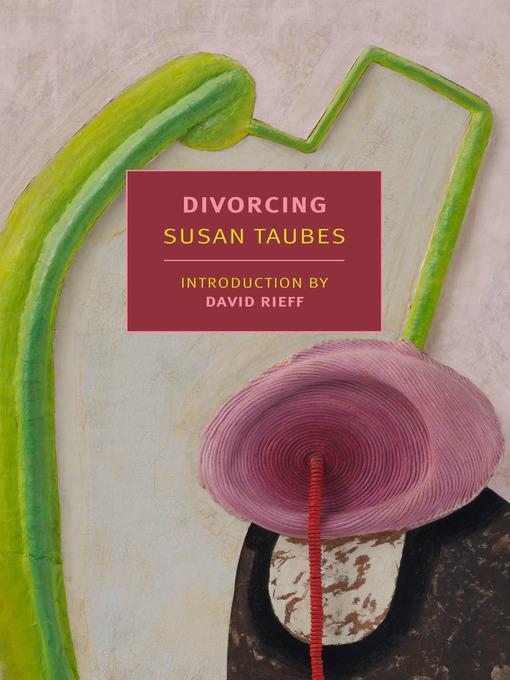
Divorcing
کتاب های مرتبط
- اطلاعات
- نقد و بررسی
- دیدگاه کاربران
نقد و بررسی

July 1, 2020
First published in 1969, shortly before the author's death, this formally bold novel will gratify admirers of Taubes' friend and contemporary Susan Sontag, Elizabeth Hardwick's Sleepless Nights, and Margaret Atwood's Cat's Eye. Sophie Blind, nee Landsmann--philosopher, secular granddaughter of the former chief rabbi of Budapest, intellectual waylaid by the exigencies of life--has announced her intention to divorce her husband, Ezra, a peripatetic academic with whom she has traveled unceasingly, "on both sides of the Atlantic as far as Jerusalem," throughout their 15 years of marriage, alighting here and there for his various visiting lecturer posts before uprooting and moving on to the next place. Although she leaves him and settles herself and their three children in a Paris apartment, acquired and appointed with the money her celebrated psychoanalyst father gave her "in case" after she married, Ezra has not managed to digest the fact that the beautiful Sophie now not only wants to live apart, but, as she says, "the thought of being married to you drives me insane." Daily reality and vivid dreams of death, judgment, and humiliation puncture and bleed into one another as Sophie adjusts to a life and identity outside her marriage, sometimes with dispassionate acceptance, other times with a detached sense of alienation. Now rooted in one place where she can "have peace and quiet to write one of the books she had always thought of writing someday," she endeavors to do just that by beginning to write an autobiographical novel. As Sophie delves into her past, divorce appears in many forms: her own rupture with Ezra; her mother's several failed marriages, including to Sophie's father; the break with her homeland when she and her father fled to America; estrangement from the religion of her forebears; escape from the fates suffered by her family members who stayed behind during the Nazi occupation of Hungary and subsequent Russian "liberation"; and the schism between her current self and past versions. Only through writing her novel can she discern the motifs of familial history and reconcile those selves she abandoned in other countries, former lives with the self she is carrying forward. A wry and cerebral study of identity, marriage, sex, and the interleafing of personal, familial, and national history.
COPYRIGHT(2020) Kirkus Reviews, ALL RIGHTS RESERVED.

July 27, 2020
Hungarian American writer Taubes first published this brilliant fever dream of the life, loves, and travels of Sophie Blind shortly before her death in 1969. In the opening of the fragmented, looping narrative, Sophie claims she has been run over by a car and decapitated in Paris—“My body growing enormous, its thousands of trillions of cells suddenly set free”—while on her way back home to New York, where she’s desperate to divorce her husband, Ezra, after years of being subsumed into married life and child rearing. Later chapters, written in a more traditional, lucid style, chronicle Hungary’s turbulent history and Sophie’s childhood in 1920s Budapest, her Jewish forebears, adoring father, and distant mother. As Sophie narrates her struggles as the middle child, she traces her persistent need to break away from others. These passages mix erudite references to philosophy and literature with autobiographical details, such as a psychoanalyst father and rabbi grandfather, while other passages channel an immediate sense of Sophie’s consciousness (“The sensation of forgetting comes back first, how one walked through years sealed in oblivion”). The result parses how a thinking woman might have gone about divorcing herself from a society that defined her in ways over which she had no control. Taubes’s stylistically innovative book is essential reading for fans of Renata Adler.

























دیدگاه کاربران